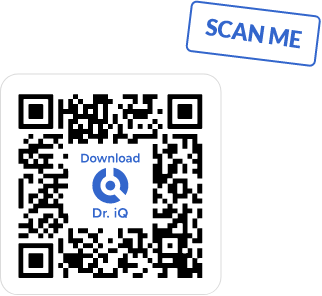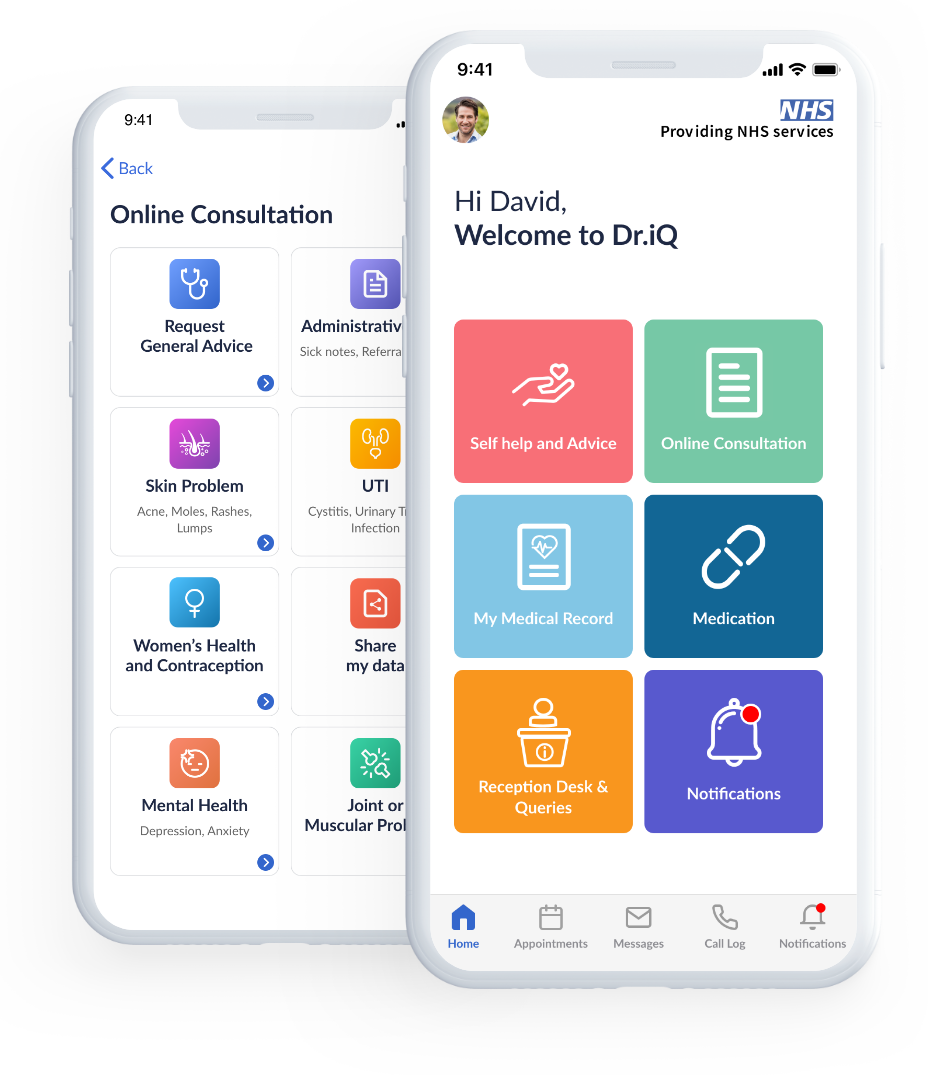There are 20 GP practices in North Southwark PCN:
All practices in north Southwark have signed up to be part of a large PCN, with the support of Quay Health Solutions (QHS). QHS work with the GP practices in the PCN and other health and social care services, to provide care for over 190,000 across north Southwark. The PCN Clinical Directors are Dr Olufemi Osonuga, Dr Sam Soo, Dr Sharjeel Hasan, and Andrei Dunn.
COVID-19 Vaccination & Boosters
North Southwark PCN Covid-19 vaccination
As of August 2023, since the start of the Covid Vaccination campaign we have given 125,977 to patients in North Southwark.
QHS offer Covid vaccinations during seasonal vaccination programmes as and when this is commissioned nationally by NHS England.
The next Covid programme is expected to be during Autumn 2023, eligible patients will be contacted by their GP.
More information will become available as it is released by NHS England. For more information visit the NHS Website.
Social Prescribing
Overview of social prescribing
Our social prescribing team work across north Southwark and comprises of 16 Social Prescribing Link Workers, including two Team Leaders. Each link worker is assigned to a group of GP surgeries within one of our five neighbourhoods. Link worker support offers patients an additional, personalised route to improving their health over the longer-term by connecting them to a diverse array of non-medical activities and community-based resources. You can meet the social prescribing team here!
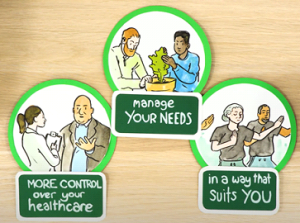
Our Social prescribing team may be in contact with patients from a registered number 0203 883 1624, please answer as this is not a spam number. Please don’t call this number for any new referrals, contact your GP practice if you need help from the social prescribing team.
The purpose of social prescribing
Social prescribing recognises that health is determined by an array of influences and social determinants. Addressing people’s needs and tackling health inequalities will therefore benefit from a holistic and self-directed approach. Many of the issues with which people present at their GP stem from these wider social factors. Treatment solely focusing on clinical health can be short-term and ineffective towards tackling the root causes of ill health. Difficulties with a person’s housing situation, finance, mental health, diet, physical activity or social isolation need to be addressed if we want to improve wellbeing in the long-term. Social prescribing is a means of giving people choice and control over the way their care is planned and delivered, based on what matters to them, their individual strengths and their needs. It makes the most of the expertise and potential of people, families and their surrounding communities, whilst delivering better outcomes and patient experience.
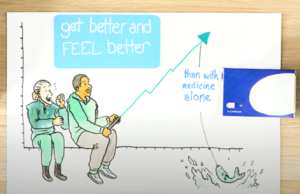
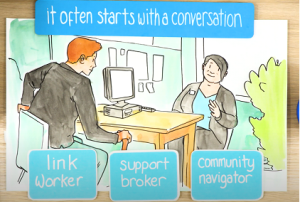
Patient Story
Practice feedback
What are the plans for the future?
The social prescribing team will continue to build our knowledge and links with the community sector. A closer integration in our ways of working will free up clinical capacity, reduce duplication and ensure better care for all. We hope that the rapid response enforced by the Covid-19 crisis can have a positive legacy in bringing people and organisations together to coordinate our efforts towards tackling health inequalities and improving the health and wellbeing of our population.
Further information
Anyone working in a GP practice can refer a patient into the social prescribing service by completing the ‘Elemental Form’ in EMIS.
Please watch ‘Social Prescribing: Transforming Health for London ‘by the Healthy London Partnership to see more fantastic social prescribing work across London.
Images used are property of Healthy London Partnership. Content used is property of Quay Health Solutions – North Southwark PCN.
Local Extended Access Service
GP practices in north Southwark are working together to deliver the extra appointments so you may not see your usual doctor but they will work regularly in Southwark and have the same skills. With your consent, any doctor or nurse you see can access your healthcare record to ensure they can offer the right treatment.
Our Friends and Family Test feedback for both 2018 and 2019 highlighted that over 90% of patients surveyed were likely or extremely likely to recommend the service.
What do we offer?
The EPCS currently offers three services:
-
GP appointments
-
Nurse appointments
-
Contraception appointments
How do I get an appointment?
If you would like a GP or nurse appointment, simply contact your GP practice in the usual way and ask them to book you in at the EPCS.
Opening Times
| Day | Core Hours |
| Monday | 08:00 AM – 20:00 PM |
| Tuesday | 08:00 AM – 20:00 PM |
| Wednesday | 08:00 AM – 20:00 PM |
| Thursday | 08:00 AM – 20:00 PM |
| Friday | 08:00 AM – 20:00 PM |
| Saturday | 08:00 AM – 20:00 PM |
| Sunday | 08:00 AM – 20:00 PM |
| Bank Holiday | 08:00 AM – 20:00 PM |
Contact details
Spa Medical Centre
50 Old Jamaica Rd
London
SE16 4BL
If you have booked an appointment at the EPCS via your GP practice or NHS 111 and need to change or cancel your appointment, please contact the EPCS reception on 020 3883 1620. Please note, we cannot book an initial appointment for you via the EPCS reception, only your GP or NHS 111 can do this.
You can download our leaflet, with a map here!
Further information
-
If you would like to know more about access to your health records, please read this this document.
-
Find out more about our EPCS achievements in the QHS 2018/ 2019 annual report.
Content used is property of Quay Health Solutions – North Southwark PCN
PCN Clinical Pharmacy Service
Overview
In 2019, NHS England‘s (NHSE) new Directed Enhanced Service (DES) was introduced across all Primary Care Networks (PCNs). QHS has successfully transferred its existing clinical Pharmacists to the new service that has been set up to strengthen the General Practice team. This will help improve patient access and promote greater multi-disciplinary team working to meet the needs of the local population.
QHS currently has ten PCN clinical Pharmacists who are working across the 14 GP practices in north Southwark. These roles have been established in partnership with NHSE‘s education and training partners, who provide the relevant training to equip the Pharmacists with the necessary knowledge, skills, and experience to develop as primary care clinicians.
These roles build on the success of previous pilots undertaken nationally, demonstrating the benefits of Pharmacists working in patient-facing roles in primary care as part of multi-disciplinary teams.
Purpose of service
Clinical Pharmacists are highly trained experts in medicines and as part of the NHS Long Term Plan mandate, are helping to increase access to GP practice services and support patients with their medicines use for both short-term conditions and more importantly long-term conditions such as high blood pressure and asthma.
With the skills they have; pharmacists help to optimise patient care and help individual patients get the best outcomes from their medicines use. This is through the provision of expert patient-tailored advice and support, promotion of quality, safe and sustainable prescribing.
The clinical Pharmacists are also training to become prescribers, some of whom are already qualified.
The clinical Pharmacists are also helping to improve links with community pharmacies and hospital teams, aiming to promote better collaboration and connectivity to ensure more seamless care between the hospital and community.
What have we done so far?
- Pharmacists played a big part in providing leadership and support in the delivery of the Covid vaccination programme, including overseeing the vaccine preparation process and directly vaccinating patients.
- Pharmacists are now working within each Neighbourhood as part of an integrated multi-disciplinary team to deliver holistic care to patients.
- Clinical Pharmacists deliver high level structured medication reviews to patients with multiple long-term conditions.
- The team focus their work on optimising patient care through supporting patients to get the best use out of their medicines, whilst also providing healthy lifestyle advice to help prevent illness and worsening of conditions.
- The team also signposts patients to other services for support.
- The team continue to implement national policy and recommendations for optimal management of patients with long-term conditions.
- The team are involved in collating relevant data to help better manage patients health and optimise care
- The team have supported GP practices with prescribing policy guidance and CQC inspections.
- Clinical Pharmacists are working within our QHS Care Home Service.
What difference has this made?
- Positive feedback from patients
- Positive feedback from GP practice staff
- Achievement of national and local targets set for delivery of care
- Increasing demand for more pharmacist skills in primary care
What are our plans for the future?
- QHS are exploring opportunities to increase the number of PCN Pharmacists to meet demand.
- Greater collaboration across the system to help develop a flexible and highly skilled pharmacy workforce that can work across the various care-settings i.e. hospital, primary care.
- QHS are looking to recruit pharmacy technicians to support the wider Pharmacy team.
- All Pharmacists are offered training to qualify as independent prescribers
- Pharmacists are being upskilled to deliver more specialist services within practices.
- Pharmacists are building a series of high quality QHS prescribing policies to support member practices.
- Further development of the roles to support recruitment and retention.
- To find your local pharmacy, please visit NHS: Find a pharmacy.
Care Navigation
Overview of the programme of work
It is recognised that the needs of some patients are social rather than clinical in nature but they are still at risk of being admitted to hospital or being in crisis. Evidence shows that providing additional support focused on social needs (e.g. social isolation) would reduce this risk or provide a more appropriate management response should a crisis arise.
Quay Health Solutions is working with Age UK Lewisham and Southwark, the CCG and other local partners within the Local Care Network to deliver a Care Navigation Pilot.
The purpose of the programme of work
We aim to ensure care is designed and delivered around the needs of the individual, through partnership working. This area of work is part of our coordinated care programme, supporting people with multiple long term conditions and frailty. Services should be joined-up to promote improved outcomes for individuals in need of health and social support, enabling them to live not just longer, but better lives.
What has been done so far?
Primary Care Navigation (PCN)
ractices in north Southwark have paired with local pharmacies and have identified reception, health care assistant and counter staff to attend a primary care navigation training programme.
The role of the PCN is designed to release clinical capacity and provide better outcomes for patients where their needs would be better met through a social intervention. The PCNs are trained to identify support and signpost patients to local services. The PCNs are supported by the SAIL Care Navigator for more complex cases.
Patient Story
John was 97 years old and kept getting nuisance calls when he was trying to sleep. He found them very distressing and was calling the GP practice to ask his GP to help. He wanted the GP to call the estate manager to make the calls stop. The primary care navigator explained that it might be better to speak to a SAIL Navigator rather than a GP since the problem was not medical. The SAIL Navigator called John to reassure him and then referred him to Trading Standards who have agreed to visit John and put blocks on his phone so he doesn’t get cold callers anymore. John has stopped calling the GP for help about this now, and feels confident that the issue will be resolved soon.
Case study
Please see this PCN case study from Old Kent Road Surgery which highlights the impact of PCN on the practice.
SAIL Care Navigation
A SAIL Care Navigator from Age UK Lewisham and Southwark works across a number of host GP practices supporting patients identified as needing additional non clinical support.
SAIL Care Navigators support people to stay healthy and independent by assessing their needs and co-ordinating an appropriate package of support. The service is for patients with high levels of social need, so the agreed plan might include supporting people to access new social groups and activities, learn new skills, access benefits advice or practical adaptations in the home.
The Age UK Lewisham and Southwark SAIL Care Navigator works closely with GP practices across a number of sites and takes referrals via the SAIL checklist. The SAIL Navigator has close links with the wider voluntary and community sector and social care colleagues.
Practice feedback
“Thank you so much for your efforts with Sarah. She left a message for me on Wednesday saying how thrilled she was with the help you have given her. I am truly grateful; you are making a big difference to her wellbeing” Ranya (Dr Zeineldine Aylesbury Medical Centre)
“Thank you so much for this and updating me – it’s really useful – you’ve done a great assessment of actually what she wants and needs! Your plan sounds perfect – I’m really grateful for this and I think all below would really benefit Georgina.” Vicky (Dr Burt Manor Place)
Patient story
Rose had become very isolated and saw no one except her daughter. She told her nurse during a holistic health assessment that she loved sewing. It turned out she was an incredibly skilled seamstress who made all her own clothes, but had nothing to sew for and was giving away all her material. The navigator told Rose about Blackfriars Sewing Club and took her on the bus. She was welcomed into the group and was thrilled at the idea of sewing bags and cushions for the club to sell and raise money for a sewing machine. She told her son she had been wasting her life all this time, and has now joined the group every Thursday for seated exercise and lunch as well as sewing.
What are the plans for the future?
Via neighbourhood working we are planning to up skill more practice staff. We will also aim to work more closely with our settlements (Time and Talents, Pembroke House, Bede House and Blackfriars) to ensure that more patients are referred to these services and receive the support they need.
Further information
See what our PCNs and SAIL Navigators think of the programme here!
Anyone working in a practice can access support for patients from a SAIL Navigator by completing a SAIL checklist. Patients can also self-refer.
Earlier this year we attended the International Forum on Quality and Safety in Healthcare to present our PCN work. You can see the poster we presented here.
Content used is property of Quay Health Solutions – North Southwark PCN
Multidisciplinary Team (MDT) working
Overview of MDT working
The main focus of MDT working is to bring together health professionals from primary care (GP practices), secondary care (hospitals), carers, social workers and the community and voluntary sector to work together to discuss patient care. By working together, health professionals are able to use their collective expertise to discuss the best interventions for patients and put them in place quickly.
MDT working is part of a wider programme of work to improve coordinated care for patients with three or more long-term conditions in north Southwark.
MDT working in north Southwark
MDT working has built relationships between local health and social care organisations and people. GP practices already connect with a range of health professionals to discuss patient care, however QHS now coordinate an additional monthly Community Multidisciplinary Team (CMDT) meeting.
The CMDT meeting provides a forum for health professionals to discuss patients with complex health needs, share best practice and identify solutions. They are an educational environment and have enabled shared learning and greater knowledge between health and social care providers about local services and support available for patients.
What have we done so far?
-
QHS currently run one MDT meeting per month at a convenient location and time for health professionals to allow full participation.
-
We have two neighbourhood facilitators who support these meetings.
-
In 2018/ 2019 we reviewed 80 north Southwark patients in these meetings.
What are our plans for the future?
In the future we plan to have MDT meetings in each north Southwark neighbourhood (Borough, Walworth south, Walworth triangle Bermondsey and Rotherhithe) as part of our neighbourhood working programme. We are working on enabling dialling in so that practice staff can attend meetings virtually.
Content used is property of Quay Health Solutions – North Southwark PCN
Neighbourhood working
Overview of the programme of work
QHS member practices are divided into five geographical areas called neighbourhoods in Southwark, which are; Bermondsey, Rotherhithe, Borough and Walworth triangle and south Walworth. Our neighbourhoods support delivery of our Partnership Southwark which aims to join up care between GP practices, hospitals, Southwark Council and voluntary and community organisations ensuring coordinated and improved quality of care for our population.
Following the Dr. Claire Fuller’s report “Next steps for integrating primary care: ‘Fuller Stocktake Report’ which was published in May 2022, our Neighbourhood teams aim to work together in a Multidisciplinary approach.
Working in neighbourhoods ensures a focus on the local needs and priorities of our member practices and their patients. It means local connections and relationships can be established across GP practices and sectors such as healthcare and the voluntary sector in a meaningful way. We have a shared purpose and shared resources to deliver quality care and outcomes for our patients living in these neighbourhoods.
QHS have been working in Neighbourhood’s and has established links with our Partnership Southwark colleagues. For example, we have worked extensively with Bede house to deliver both Covid and Flu vaccinations. We are supporting our Southwark Council colleagues to deliver a Vital 5 check at various festivals and community led events during 23/24. We have also enabled, via ARRS funding, for our patients to receive in a primary care setting a Mental Health practitioner and First Contact Practitioner service.
GP practices are working more closely than ever with our partners including Guy’s and St Thomas’ NHS Foundation Trust, South London and Maudsley, Southwark Council, Community Pharmacy and voluntary and community services including our local settlements; Bede House, (Bermondsey), Time and Talents,(Rotherhithe), Blackfriars Settlement (Borough) and Pembroke House (Walworth).
This growing multi-disciplinary approach to developing and improving services is enabled and supported by our monthly Neighbourhood meetings led by the Primary Care Network Clinical Directors who are aligned to each Neighbourhood.
What has been done so far?
- We have recruited two neighbourhood coordinators and a neighbourhood manager to support GP practices with this new way of working. One coordinator will work across Borough and Walworth and one coordinator will work across Bermondsey and Rotherhithe.
- A neighbourhood programme was launched in November 2018, bringing together over 100 people from primary care, secondary care and the voluntary and community sector to explore areas of common challenge and scope improvement projects.
- Our Care Navigators, based in GP practices have been trained at their local settlement and will refer patients who would benefit from services provided by the settlements.
- Neighbourhood Champions including a GP, practice manager and practice nurse have been recruited to progress neighbourhood projects in Rotherhithe and the Walworth triangle.
- Pilots were launched in the Walworth triangle and Bermondsey and Rotherhithe neighbourhoods to look at solutions for people with mental health issues. You can read more about this in our Year in Review 2018 – 2019.
What are the plans for the future?
- We will continue to provide training, share best practice and support and develop new ways of working across practices.
- We will continue to work on pilot projects and share learning with other neighbourhoods.
- Our neighbourhood development work will support the work of our Primary Care Network and Partnership Southwark.
Content used is property of Quay Health Solutions – North Southwark PCN
Our Contracts
Quay Health Solutions (QHS) is a group of 21 GP practices (member practices) in north Southwark. QHS has been given funding by NHS South East London ICB to improve the quality of care in general practice and improve the health outcomes of local patients. As part of this, we support our member practices to deliver the Population Health Management Service contract, the Personal Medical Service contract, the Extended Primary Care Service and the Care Home Service.
Population Health Management Service (PHMS)
The PHMS contract began in April 2015. All member practices support the delivery of the PHMS contract. The services we offer as part of this contract include:
-
Coordinated care for people with three or more long term conditions
-
NHS Health Checks
-
Annually reviewing people who have pre-diabetes
-
Providing asthma and COPD inhaler reviews
-
Ambulatory blood pressure monitoring
Personal Medical Service (PMS)
The PMS is a locally agreed contract between the CCG and individual GP practices. The PMS contract includes: providing flu vaccinations, supporting people who; have suffered from a stroke, have hypertension, have chronic heart disease or have diabetes. It also includes supporting people who are at the end of their lives. In north Southwark, QHS support our member practices with the delivery of the PMS primary care services for our population.
Content used is property of Quay Health Solutions – North Southwark PCN
Click the link below to find out more about your local PCN: https://www.quayhealthsolutions.co.uk/our-primary-care-network/





